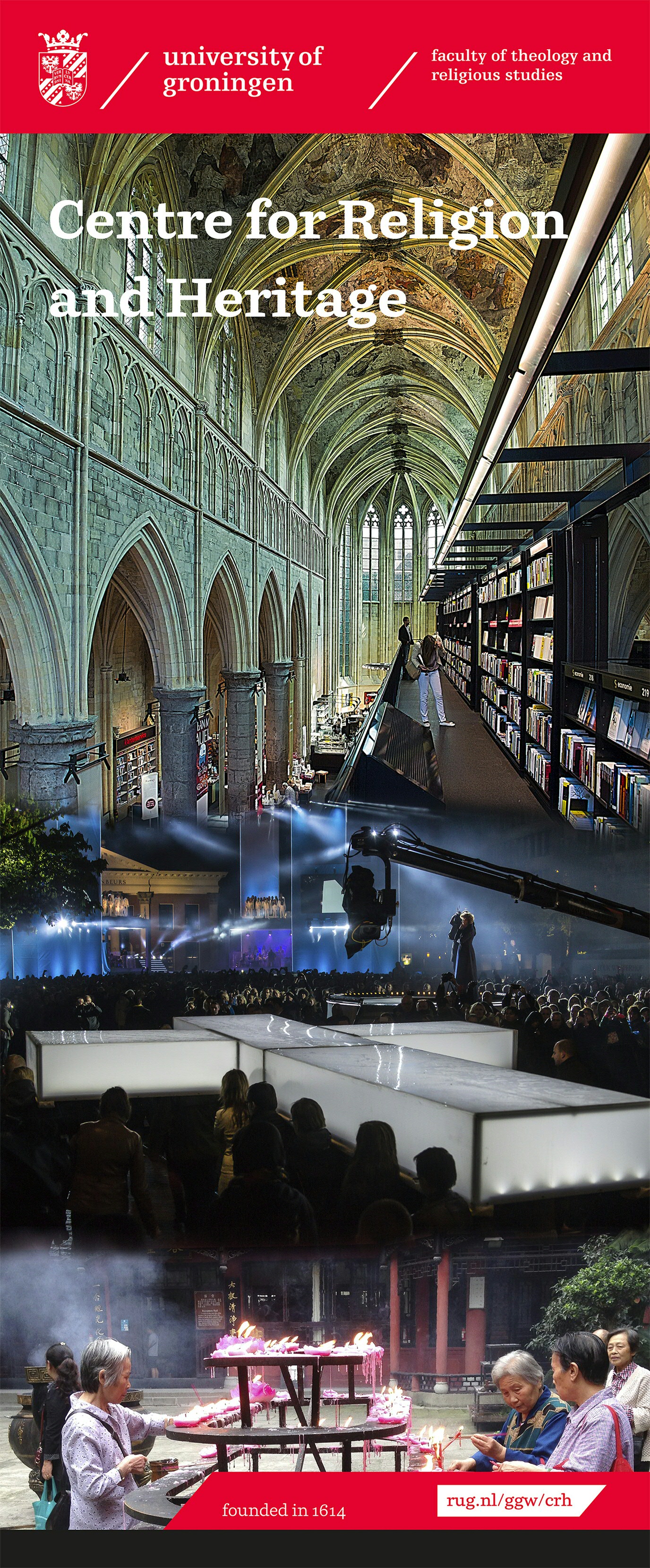Launching of the Centre for Religion and Heritage at the University of Groningen
On Wednesday 25 October, the Centre for Religion and Heritage (CRH) was officially opened by F.J. Paas, the King’s Commissioner in Groningen. The Former Courtroom at the Faculty of Religious Studies and Theology in Oude Boteringestraat was filled to capacity with students and scholars, but above all with representatives of the leading Dutch heritage organizations and museums. This was a testimony to the urgent need for scholarly focus on the issue of religious heritage in the Netherlands.
In his opening remarks, Director prof. dr. Todd Weir laid out his vision for the Centre as a research hub that integrates professional training through a new master’s program and collaborates with those government offices, churches, museums and foundations that are grappling with the challenges facing the Netherlands. The CRH is the successor of the Institute for Christian Cultural Heritage, which has contributed to heritage work in the Netherlands over many years. The new Centre will extend is research beyond Christian heritage to include ancient, Islamic, Jewish and Buddhist religious history as well as new forms of religion and secularism.
Weir opened the day’s seminar on ‘Religious Heritage in a Secular Age’ with the observation that secularization was creating an urgent need for scholars of religion to bring their expertise to bear on the problem of heritage. In the Province of Groningen, the dramatic shrinkage of church attendance meant that more and more Groningers experience religion as heritage rather than as living tradition.
Judeo-Christian culture
In his keynote address the renowned British Church historian, Hugh McLeod described how our current secular age was born abruptly in the transformation of religious practice in the 1960’s. The young Utrecht scholar, Ernst van den Hemel followed up with a look at the politics of heritage today. He cautioned his listeners to look carefully at what was being sold as religious heritage in the political realm. Citing his analysis of over 400K tweets by Dutch nationalist parties, he found, for example, that talk of “Judeo-Christian” culture was rarely about Judaism or the practice of Christianity and nearly always a preface to anti-Islamic claims.
Following presentations showcasing the innovative research that postgraduate students are undertaking in the field of heritage, representatives of leading Dutch heritage organizations entered into a roundtable discussion. These included Emile Schrijverof the Jewish Historical Museum, Gerhard Bakker of the Foundation for Historic Frisian Churches, Suzan Folkerts of the Athenaeum Library, Michiel Verweij of the government Office of Cultural Heritage, and Jaap Broekhuizen of the Protestant Church of the Netherlands. These speeches revealed a consensus regarding the need for action and greater understanding in field of religious heritage in contemporary Netherlands. One recurrent theme of the day was how future church vacancies represent both a challenge and an opportunity.
Ancient churches
The day closed with an inspiring speech by the King’s Commissioner in Groningen.
Addressing directly the need to find new uses for ancient churches , Paas called for pragmatic but creative and fitting solutions. Overall, Paas’ remarks contributed to the expectation that the new government coalition will make religious heritage a priority.
The Commissioner’s speech chimed in with the overall impression made by the ceremony in the Old Court Room. The event was not merely a formal opening of a new academic institute, but rather an expression of an awareness shared by government, churches, heritage organizations and scholars alike that there is not only a growing need for action in the field of religious heritage, but also the collective will to do so.

More news
-
15 September 2025
Successful visit to the UG by Rector of Institut Teknologi Bandung
